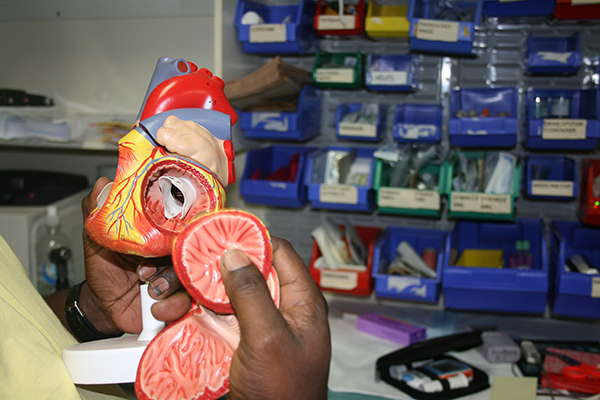Search
Research
Rheumatic heart disease in Timor-Leste school students: an echocardiography-based prevalence studyThe rates of RHD in Timor-Leste are among the highest in the world, and prevalence is higher among girls than boys. Community engagement is essential for ensuring follow-up and the effective delivery of secondary prophylaxis.
Research
Rheumatic heart disease: infectious disease origin, chronic care approach.Rheumatic heart disease (RHD) is a chronic cardiac condition with an infectious aetiology, causing high disease burden in low-income settings.

News & Events
The Kids Research Institute Australia to lead international research team in tackling acute rheumatic feverAn international research team led by The Kids Research Institute Australia has been awarded a $5 million Synergy Grant by the NHMRC.

News & Events
Preventing RHD through community-driven activitiesHealth activities driven by remote Indigenous communities may be key to the sustainable and successful treatment and prevention of a potentially fatal disease, a study has found.

News & Events
New RHD research collaboration with Danila Dilba Health ServiceThe Kids Research Institute Australia and Menzies School of Health Research have joined forces with Danila Dilba Health Service to look at improving treatment for RHD.

News & Events
Rheumatic heart disease remains a major killer in Oceania regionA new study shows that people living in the Oceania region, including Australia, have the highest risk in the world of dying from rheumatic heart disease.

News & Events
Partnering to end rheumatic heart diseaseResearchers from The Kids Research Institute Australia are sharing expertise and knowledge to end rheumatic heart disease in this country.

News & Events
The Kids Research Institute Australia researchers finalists for 2016 Eureka PrizesThree Perth researchers from The Kids Research Institute Australia have today been named finalists for the 2016 Australian Museum Eureka Prizes.

News & Events
New Rheumatic Heart Disease CentreThe Kids Research Institute Australia is proud to announce the launch of a world class Centre of Research Excellence in rheumatic heart disease (RHD).

News & Events
RHD a notifiable conditionWestern Australian doctors are now required by law to report all cases of rheumatic heart disease.
